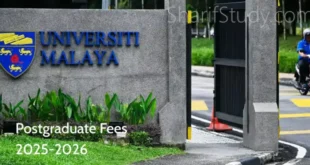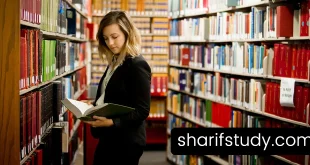Master of Development Studies (MDS)
The Master of Development Studies is a multidisciplinary program in University of Malaya that aims to provide a solid foundation in development from theoretical, conceptual, historical, and contemporary perspectives, as well as a solid understanding of empirical research, policy analysis, and development in practice, which is applicable to development scholars, practitioners, and policymakers.
The curriculum introduces students to a variety of development-related ideas and issues. Students are also instructed on development studies research methodology. Master of Development Studies (MDS) tuition fees for academic year of 2023-2024 is 33,700 Ringgit.
Program Structure
Core Courses
- Research Methodology
- Research Project
- Development Theory and Practice
- Globalization and Development
- Sociology of Development
Research Methodology: The Research Methodology course equips students with the skills to carry out effective and ethical research. It covers various research designs, data collection methods, and analytical tools. It also discusses how to formulate research questions, write literature reviews, and present research findings.
Research Project: The Research Project course allows students to apply what they’ve learned in the Research Methodology course.
It’s a hands-on course where students undertake a project on a topic of their choice, under the guidance of a faculty member. This course aims to provide real-world research experience and to contribute new knowledge or insights to the field.
Development Theory and Practice: This course explores the various theories and practices related to social and economic development.
It delves into historical and contemporary models of development, scrutinizing their strengths, weaknesses, and impacts on different societies. Students learn how to critically evaluate different approaches to development and their implications on policy.
Globalization and Development: The Globalization and Development course investigates the effects of globalization on economic and social development.
It covers topics such as global trade, international relations, and the impact of globalization on local cultures and economies.
The course invites students to discuss and debate the benefits and challenges of globalization in the context of development.
Sociology of Development: The Sociology of Development course examines the social aspects of development. It explores how social structures, relations, and processes influence development efforts and outcomes.
This includes studying the roles of different social groups, institutions, and cultural practices in shaping development.
Elective Courses
- Social Protection
- Political Economy
- Public Policy Analysis
- Social Policy and Development
- Planning and Community Development
- Applied Econometrics
- Poverty and Inequality
- Gender Issues In Development
- Climate Change and Development
- Environmental Sustainability In Organizations
- Sustainable Finance
- Entrepreneurship And Innovation For Development
- Institutions and Industrial Development
Elective Courses Descriptions
Social Protection: This course examines the mechanisms designed to prevent, manage, and overcome situations that adversely affect people’s well-being.
Political Economy: The Political Economy course explores how political institutions, the political environment, and the economic system interact.
Public Policy Analysis: This course focuses on the process of public policy making, including the factors influencing policy decisions. Students learn to apply analytical tools and methodologies to evaluate policy options and understand their potential impacts.
Social Policy and Development: This course examines the role of social policy in promoting social development and welfare. It covers the design, implementation, and impact of social policies and their role in addressing social issues like poverty, inequality, and social exclusion.
Applied Econometrics: The Applied Econometrics course equips students with the skills to analyze economic data and use econometric models. It covers techniques for understanding economic relationships and testing economic theories using real-world data.
Poverty and Inequality: This course examines the causes, consequences, and measures of poverty and inequality.
Gender Issues in Development: This course explores the role of gender in development processes.
Climate Change and Development: This course analyzes the impact of climate change on development efforts. It covers the challenges and opportunities of sustainable development in the context of climate change and explores strategies for climate change mitigation and adaptation.
Environmental Sustainability in Organizations: This course examines how organizations can contribute to environmental sustainability.
It covers strategies for reducing environmental impacts, promoting sustainable practices, and balancing organizational goals with environmental responsibilities.
Sustainable Finance: This course covers financial practices that support economic growth while reducing pressures on the environment.
Institutions and Industrial Development: This course investigates the role of institutions in promoting industrial development. It explores how different types of institutions, including governmental, economic, and social institutions, influence industrial processes, policies, and outcomes.
 SharifStudy Best way to Study in Malaysia
SharifStudy Best way to Study in Malaysia




